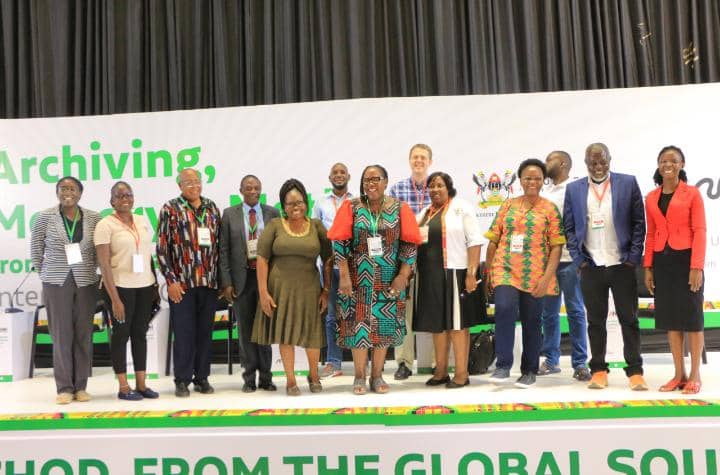By Julius Mugaga Tukacungurwa/Umoja Standard.
Kampala, Uganda: Speaking at the closure of 3-day Archiving Memory and Method from the Global South International Conference 2024 (17-19th October), Prof. Eric Awich Ochen, Deputy Principal of Makerere University’s College of Humanities and Social Sciences, hailed the success of the international conference, thanking participants from 14 countries, including South Korea, the UK, and the US, for traveling to Uganda. “We thank you very, very much for creating time to travel all the way… to participate in this international conference and interact with us,” he said.
Ochen highlighted Uganda’s rich cultural diversity, with 65 languages and numerous subcultures. “For my community, people dance and sing when they are happy… when they are sad… when people are being born, and when people are being buried,” he noted. “Music, dance, and drama imbue and inhabit everyday life.”
Emphasizing the importance of knowledge sharing, Ochen stated, “Conferences create an important space… where new knowledge is disseminated and feedback given to key scientists.” He encouraged participants to expand their friendships and connections, potentially leading to new research collaborations.
Ochen invited participants to explore Uganda’s attractions and even consider immigrating, saying, “Uganda is a very friendly country and also a cheap country to live in. You are most welcome.” To those departing, he wished, “May you have a safe journey back home”.
In his Keynote address at the closing of the conference, Prof. David Luyombya emphasized that Archiving memory is crucial for preserving knowledge and human activities, particularly in the Global South.
“Memory is there, but we need to ensure it’s not lost over time due to challenges like paper records, language diversity, and limited access to digitization technologies.”
He stressed the importance of post-independence archives, saying, “They are valuable sources of information, but often overlooked.” Dr. Luyombya called for collaboration, funding, and training to address these challenges.
The keynote further stressed that, Language diversity is both a threat and an advantage in archiving memory with some being major and the reverse.
He called for International collaboration which would play a crucial role in enhancing knowledge sharing and ensuring people get the right knowledge.
“Archives is a profession requiring a broad body of knowledge; investing more in education is crucial. We must revolutionize archiving operations to ensure post-independence archives are attended to and made available. Keynote read in parts.
Dr. Charlotte Karungi Mafumbo, Convener of Makerere University’s Archiving Memory and Method International Conference 2024 reflected on the event’s success, saying, “Every long journey starts with one step. We’ve had a grand finale.”
The conference featured 90 activities, including keynote speeches and panel discussions, made possible through the support of the Mellon Foundation, Professor Josephine Ahikire, and participants.
Dr. Mafumbo highlighted key takeaways: “Dr. Luyombya warned us about threats to archives, emphasizing intentional investment at national and community levels and the importance of archive integrity, and the need for national policies on archiving and book policies”
She emphasized that everyone is obliged to contribute to national debates on the importance of archiving memories and methods.
Principal Investigator of the Archiving Memory and Method from the Global South Project at Makerere University, Professor Josephine Ahikire hailed the conference’s international success, drawing participants from 14 countries across Africa, Asia, Europe, and Latin America.
“This conference has shown that people are interested in archiving memory and method from the Global South; they just need facilitation. Facilitation means taking charge of ourselves, our history, and our identity – not just about money.” Ahikire said.
The International conference highlighted the importance of self-directed initiatives in preserving cultural heritage and promoting knowledge sharing.


